Dell: An Amazing Journey From A To Z
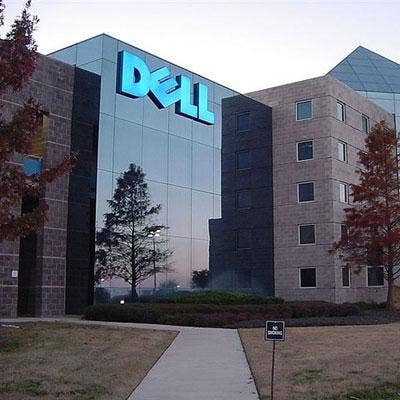
Taking A Look Back
Once upon a time, Dell was the best at what it did: building custom-configured PCs with amazing efficiency. It dominated the market with fair prices that delivered healthy profit margins, making it the envy of the industry. That was Michael Dell's Golden Age. Today, Dell is in transition. It's a private company and is executing on a turnaround strategy, which still involves PCs but much more business services.. Dell, the company, just turned 30 years old this month, and has endured over the years. It's been a roller-coaster journey that's included wrong turns, such as Dell's failed MP3 player and smartphone ambitions. It also has had plenty of successes, such as acquiring Perot Systems in 2009, which vaulted it into the technology services business where it could compete with IBM and HP.
Here is a look back at the PC maker's storied past, from A to Z.
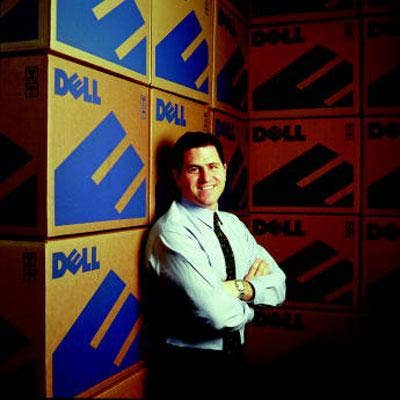
Ambition
A is for an ambitious 19-year-old Michael Dell, who out of his University of Texas dorm room in 1984 started a computer business called PCs Limited on a shoestring budget of $1,000.
Michael Dell's ambition has been a defining characteristic of the visionary computer maker, who is credited for single-handedly creating just-in-time PC manufacturing and having the foresight to leverage the Internet to sell build-to-order PCs direct online. In 2013, Michael Dell tapped his ambitions once again and successfully won a hard-fought, go-private $24.9 billion leveraged buyout to take his company private. The goal, he said, is to transform what Michael Dell calls "the world's biggest startup" into an enterprise solutions and channel powerhouse.
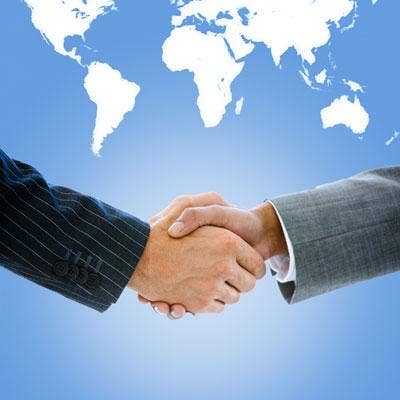
Business Partners
Today the channel represents about $20 billion, or 33 percent, of Dell's nearly $60 billion in annual revenue. Michael Dell has said that the percentage of Dell sales going through the channel has the potential to reach as much as 60 percent of the company's commercial sales -- with no limit on just how high it could go.
In December, Dell said it would embark on a warpath to boost its relationship with the channel by moving over 200,000 accounts in the hands of partners. As part of the drive to boost its enterprise hardware, software and services revenue, Dell said it was rolling out lucrative incentives for Dell Direct sales reps to work hand-in-hand with channel partners. Dell said part of the push includes a 20 percent "compensation accelerator" for its direct sales team to generate new enterprise business with partners, along with co-managing direct accounts with the channel.
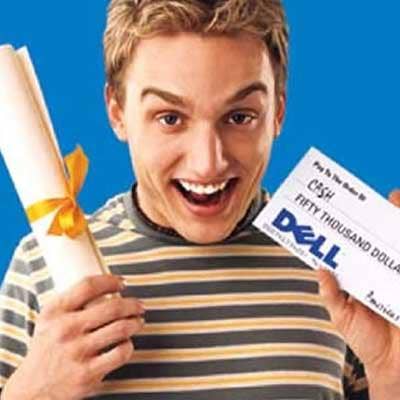
Ben Curtis (for letter C)
Actor Ben Curtis played Steven in the popular Dell commercials that made famous the catchphrase, "Dude, you're gettin' a Dell!" The ads ran from 2000 to 2003, and Curtis quickly gained notoriety as the "Dell Dude." In 2003, the "Dude, you're gettin' a Dell!" commercials were phased out when Curtis received negative attention after being arrested and charged with criminal possession of marijuana, according to CNN.
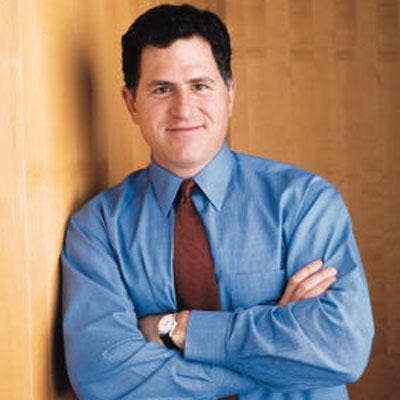
Dell Inc.
Dell Inc. was incorporated as Dell Computer Corporation, D.B.A. PC’s Limited, in May of 1984 by Michael Dell when he founded the company in his University of Texas dorm room in 1984. Michael Dell changed the name of the company to Dell Computers Corp. in 1988, then in 2003 to just Dell Inc. in an effort to reflect the diversification of the company's product portfolio from PCs to consumer electronics, software, business-class servers and storage devices.
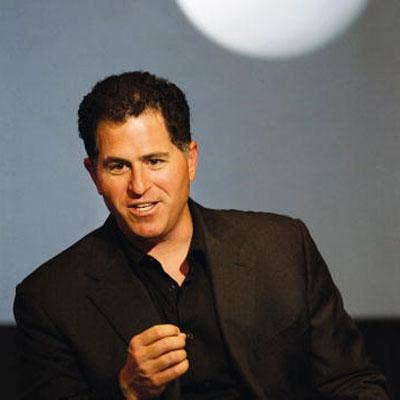
Evolution
Dell's evolution as a PC maker to an end-to-end enterprise solution provider will be hard work for Dell. Michael Dell's critics told CRN after Dell went private late last year that the culture and internal politics of the company must change before it can evolve. Key to growth is more effectively leveraging Dell's 140,000-strong army of worldwide channel partners and burning its image as a low-cost hardware supplier. Evolution starts with convincing the world it is a full-solutions player, and it is taking the steps it needs to get there.
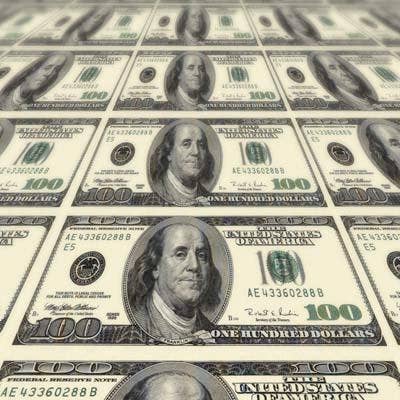
Fortune
Dell the company was ranked No. 51 in Fortune magazine's most recent 2013 Fortune 500 list of most valuable American privately held companies. According to fiscal-year-ended-Jan. 31, 2013 numbers, Dell had revenues of $57 billion, against profits of $2.4 billion and assets of $47.5 billion. Compared to its IT peers in the same time frame, Apple reported $156 billion in revenue in 2013, and Hewlett-Packard reported $120 billion.
In 2013, Michael Dell's net worth was estimated by Forbes at $15.9 billion, making him the eighth richest techie in America.

Green Push
In 2004, Dell took the lead among its PC-making peers when it pledged to establish product-recycling goals. Two years later, Dell exceeded its recycling-program aims, and in 2007 the National Recycling Coalition awarded Dell its "Recycling Works" award.
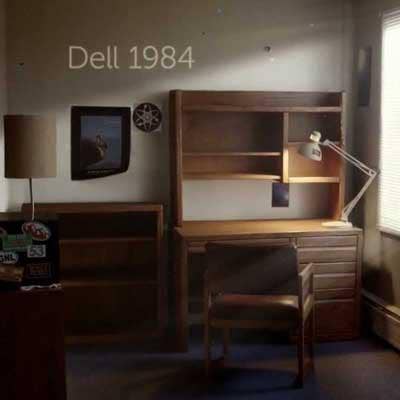
Home
The name of the dorm where Michael Dell started selling computers out of when he was a 19-year-old freshman at the University of Texas was Dobie Center dorm. Michael's dorm room number was 2713. Michael Dell's dorm room was recently shown in a Dell's Dell Beginnings commercial, featuring startups such as Overstock.com and Salesforce.com, which got their start using Dell technology.
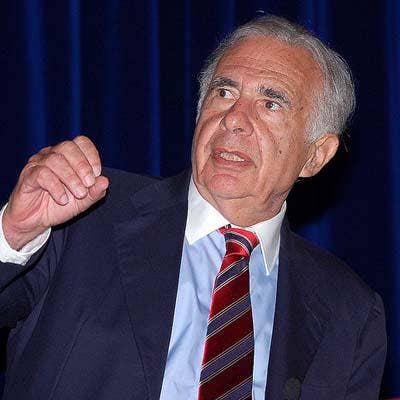
Carl Icahn
Activist investor Carl Icahn will forever be tied to Dell's $24.9 billion leveraged buyout as an outspoken loudmouth who fought hard to stop Michael Dell and his investment partners from succeeding in taking his company private. In the end, Icahn lost.
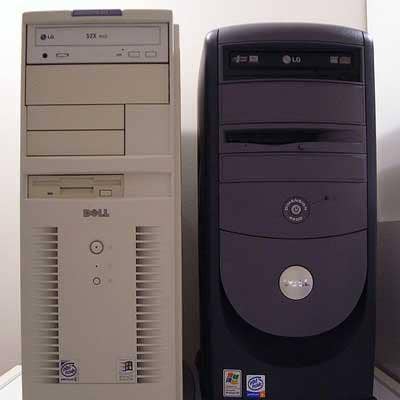
Just-In-Time Manufacturing
Just-in-time manufacturing is a process where a manufacturer purchases and receives components just before they're needed on an assembly line. Starting in the 1990s, Dell was the first computer maker to use just-in-time manufacturing to build PCs. It was a key competitive advantage for Dell over Compaq, HP and IBM when it came to keeping prices down and making sure systems had the latest and greatest technology. It's also a business technique credited to helping Dell transform from an IT mail-order contender to a direct online sales behemoth.
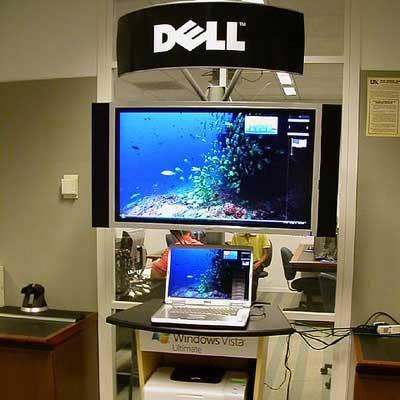
Kiosks
As part of an expansion into the retail sales channel, Dell introduced a self-service kiosk in 2002,which let people shop, configure and order PCs inside select big-box electronics retailers and other places, such as airports. At its height, Dell had 140 kiosks in stores around the U.S. But in 2008, Dell abruptly shuttered all its U.S. kiosks, opting instead to partner with a handful of retailers to provide Dell PCs in stores.

Leveraged Buyout
CEO Michael Dell and Silver Lake succeeded with its $24.9 billion leveraged buyout of Dell that enabled them to take the company private. A leveraged buyout is when an outside (or inside) entity purchases a controlling share in a company using outside capital (bonds or loans) to take control of a firm. A leveraged buyout allows companies to make large acquisitions without having to come up with huge amounts of capital. That's because, typically, the assets of the company being acquired are used as collateral for the loans.
According to Bloomberg, Michael Dell's leveraged buyout was the largest since 2007.
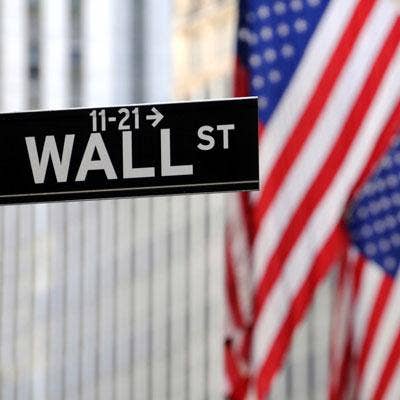
Market Debut
In 1988, Dell made its market debut, holding an initial public offering. It raised $30 million, estimating its value at the time at $85 million. About a year before Dell became a private company, it had an estimated worth of $57 billion.
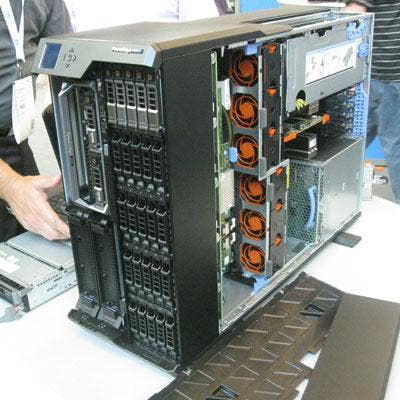
New Products, New Markets, New Business And New Horizons
Dell is still at its core a PC maker, with 50 percent of its revenue coming from building computers (which drives 50 percent of all of its enterprise sales). But today, Dell is focusing on new products, new markets and new business as the industry shifts to cloud, data center, security and software services.
Dell has been rolling out new products well-received by business partners. Earlier this year, for example, it released its Compellent Flash-optimized storage, which uses a mix of Flash and disk drives, for higher performance and lower cost, and the PowerEdge VRTX (pictured), which combines servers, storage, networking and management software into a single box.
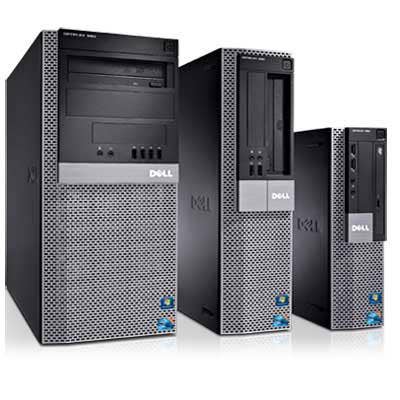
OptiPlex
Dell's line of OptiPlex desktop computers have been one of its most enduring brands, targeting corporate, government and education markets. According to Wikipedia, the first OptiPlex was model XL 5, which sported a Pentium 75 processor running at 50MHz and came standard with 8 MB of RAM. It was introduced in 1995 and had a starting price of around $2,500, which included a 15-inch CRT monitor.
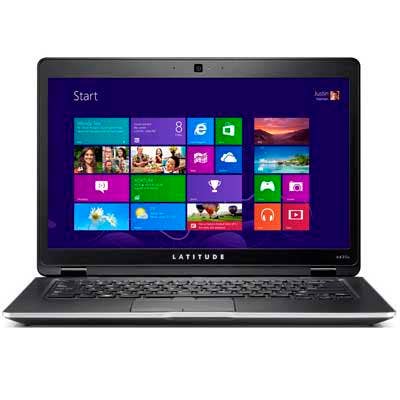
PCs
In the first quarter of 2014, Lenovo led the world's PC market with a 17.7 percent share, while HP and Dell took the second and third spots, with 17.1 percent and 13.4 percent market share, according to market research firm IDC. Dell long held the top spot as the No. 1 PC seller. In 2000, it became the No. 1 market share leader. It held onto the title for six years until 2006, when HP overtook Dell as the largest PC maker.
Today, Dell points out, Dell is No. 1 in PC revenues globally, No. 3 in units shipped. And No. 1 in commercial units shipped in the U.S. Dell points out, because it sells more valuable units its revenue in PCs is higher than Lenovo and Hewlett-Packard.
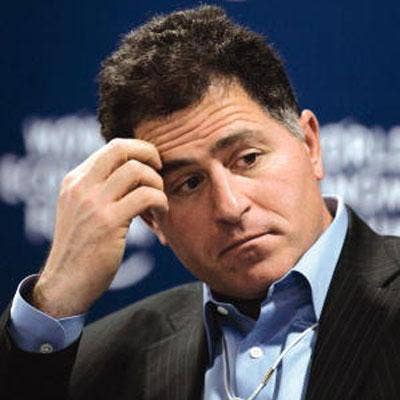
Quit
In 2004, Michael Dell quit Dell, handing over the CEO reins to Kevin Rollins, the company's COO at the time. Michael Dell said he was stepping down from the day-to-day management of the company to spend more time with his family and focus on philanthropic work. He maintained a seat on the company's board and promised to be active in the company's R&D efforts.
Dell returned to the company in 2007 to replace Kevin Rollins, who quit and left the Dell board. While Dell vacated the company in good health, under Rollins' leadership the company faltered. At the time, Dell was hemorrhaging market share as consumer PC demand was spiking. At the time, consumers were driving PC growth buying systems from retailers such as Circuit City Stores and Best Buy. Meanwhile, Dell was focused on selling PCs to business.
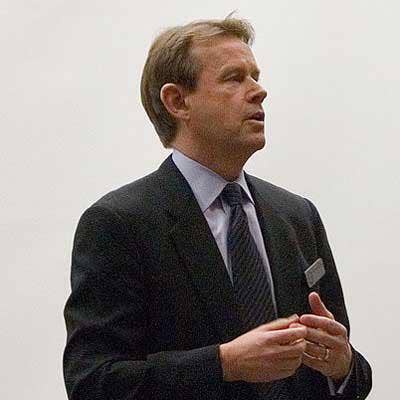
Kevin Rollins
In 2004, Michael Dell resigned as CEO and handed the CEO title to Kevin Rollins. Rollins had been pPresident and COO since 2001. Under his leadership, Dell slumped, with customer satisfaction dropping precipitously as gripes about long wait times for customer support began to mount. Michael Dell returned to Dell in 2007 and took back the CEO job title.
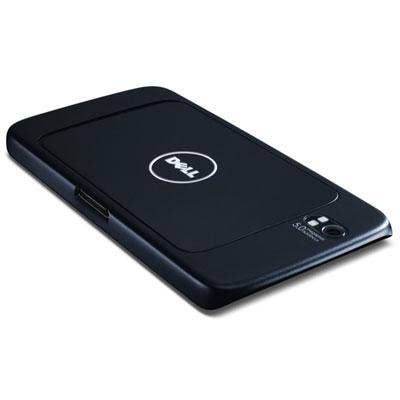
Streak Smartphone
Dell has had its share of bombs, including the Dell Streak. Launched in 2010, it was a 5-inch Android smartphone hybrid tablet (phablet) with an 800-x-480 pixel display. Reviewers raked Dell through the coals for what it called a bulky "Frankenphone" with poor software. Dell quickly discontinued the smartphone in 2011.
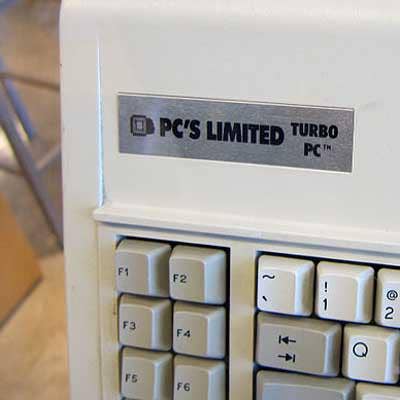
Turbo PC
It all started for Dell with the Turbo PC, Dell's first PC sold to the public in 1985. The Turbo PC sported an Intel 8088 processor running at 8MHz with a 10-MB hard drive and a 5.25-inch floppy drive.
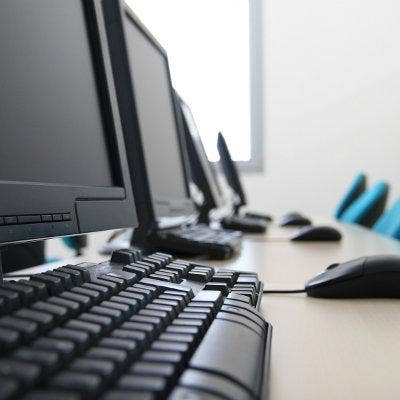
Underestimated PC
One of the biggest misconceptions Dell critics have is making the assumption the PC is "dead," said Michael Dell in an interview with CRN in November of 2013. Dell said not to underestimate the PC:
"Dell and other companies are asking ourselves, 'What happens to the PC space?' My point of view is the PC is evolving. The obituary of the PC has been written 25 times. The term 'post-PC era' was first coined in 1999 by IBM. At the time, there were about 120 million PCs sold per year. Now there are 450 million PCs sold per year. So the post-PC era has been better for the PC than the pre post-PC era," Dell had said.
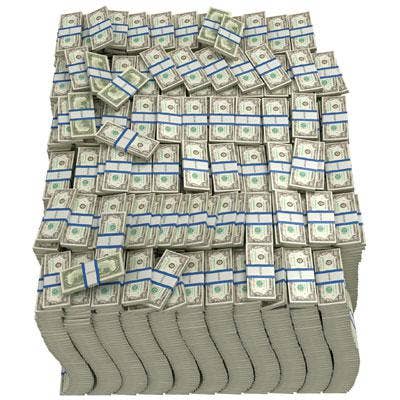
Valued
What's Dell valued at today? According to Forbes, privately held Dell is ranked No. 3 on Forbes list of America's largest private companies and worth an estimated $57 billion. Forbes also notes that Dell is ranked No. 84 in terms of the world's most valuable brands. Dell is the world's No. 3 supplier of PCs, behind HP and Lenovo.
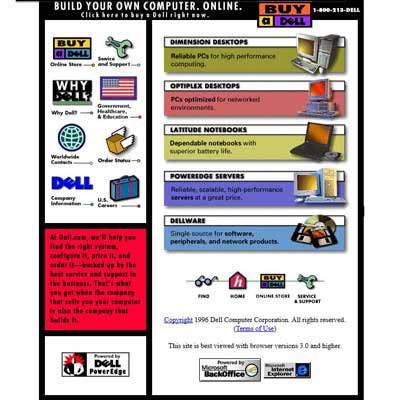
World Wide Web
Dell was an early web pioneer, launching Dell.com in 1996. Dell's direct and build-to-order model was ideally suited for the web. According to reports, six months after it started selling PCs online, the company was making $1 million in sales per day through the site.
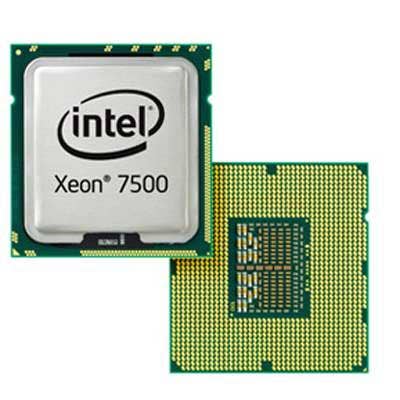
Xeon Microprocessors
Today Dell's PowerEdge servers are powered by Intel's Xeon Processor E5-2600/1600 v2 product family. Intel's Ivy Bridge Xeon E5-4600 v2 processors that plug into the existing four-socket "Romley" platforms rolled out earlier this year. After that, Intel will release the Xeon E7 and its Brickland platform. Each of these will be drop-in upgrades for existing Sandy Bridge systems.
Dell's bleeding-edge PowerEdge M620 comes equipped with Intel's Xeon E5-2697 v2 2.70GHz. No word on Dell's adoption of Intel's next-generation server chips.
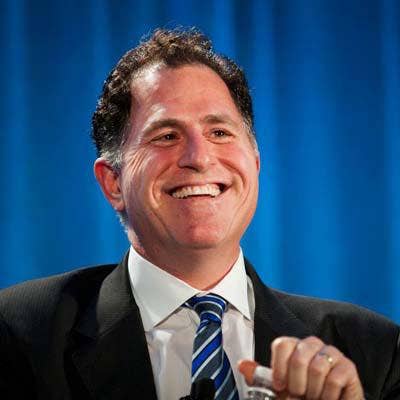
Young Again
After Michael Dell won his hard-fought battle to take his company private, he said it was his mission to run the company like a nimble young startup. Freed from the quarterly spotlight of Wall Street investors, he said, Dell would be run like "the world's biggest startup." He hopes to break free from Dell's PC shackles and coax it to "mature" into an enterprise solutions provider and channel powerhouse.

Zingers
During Michael Dell's battle to take his company private last year, Carl Icahn was a veritable zinger machine, cranking out relentless critiques of CEO Dell and his company via amusing one-liners and colorful quotes.
Icahn joined Twitter on June 20, 2013, with his first tweet -- a Dell joke. "Twitter is great. I like it almost as much as I like Dell."
On July 24, 2013, he tweeted: "All would be swell at Dell if Michael and the board bid farewell."